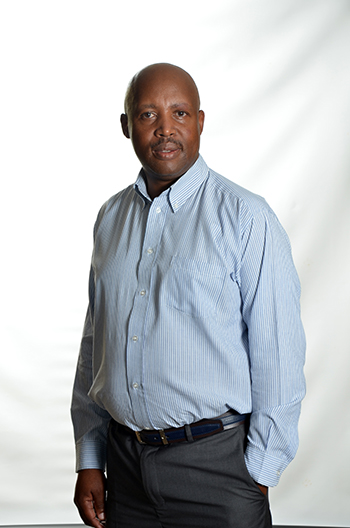Latest News Archive
Please select Category, Year, and then Month to display items
10 March 2022
|
Story Anthony Mthembu
|
Photo Unsplash
 The No Student Hungry team gearing up to start distributing food parcels to the selected students.
The No Student Hungry team gearing up to start distributing food parcels to the selected students.
The UFS is one of the many institutions of higher learning where food insecurity is an active issue. However, the
No Student Hungry Programme is one of the initiatives launched at the university to assist in fighting food insecurity at the institution.
The purpose of the programme
Since its inception in 2011, the initiative has assisted many students in acquiring a healthy meal. Additionally, the Food Environment Office also hands out food packages, so that students can continue to achieve academically. “We are trying to develop a healthy environment for students and make it easier for them to have a nice and healthy meal,” stated Annelize Visagie, who heads the Food Environment Office at the UFS. The Food Environment programme is spread out on all three campuses, each with its own facilitators. Furthermore, the programme mainly caters for students who are not funded by the National Student Financial Aid Scheme (NSFAS) but who are excelling academically. The abovementioned students apply for assistance online, and a list is then drawn up of students who receive assistance for the year.
Alternative solutions to keep the initiative running
On the Bloemfontein Campus, the No Student Hungry Programme will be catering for 200 students in the 2022 academic year, assisting them with a daily nutritious meal. Additional food parcels are also handed out to provide further assistance. “We give food parcels to the students on the list every Tuesday and Thursday at the Thakaneng Bridge,” Visagie highlighted. However, she argues that catering for the student population through this programme can be a challenge, as the demand for assistance is growing rapidly and the ability to assist is limited. The programme relies on partnerships and sponsors to assist the student body. In fact, the coordinators of the programme currently have a memorandum of understanding with Tiger Brands according to which they deliver around 100 food parcels for distribution.
In addition, the coordinators have put in place alternative measures to ensure that they can provide more food to students. “The
Kovsie Act Office, in partnership with the
Department of Sustainable Food Systems and Development, has started a food garden where healthy and nutritious produce are grown, in order to add value to the distribution,” she indicated. Although the programme can only assist to a point, students who are in desperate need of assistance are never turned away. In fact, the
Social Support Unit at Thakaneng Bridge usually assists students with food vouchers for a maximum of four days.
A commitment to teaching healthy eating habits
The programme is not only committed to curbing food insecurity, but also to ensuring that students have a healthy and balanced diet. As such, a booklet is being issued by the
Department of Nutrition and Dietetics in collaboration with the Department of Sustainable Food Systems and Development, which contains ways in which students can make a healthy meal using some of the ingredients offered in the food parcels.
“We want to teach students how to eat healthy in the cheapest way, because they don’t have a lot of money to buy expensive food products,” Visagie argued.
Meet our Council: Mr Rantooa Moji – passionate about the welfare of workers
2017-07-07

Mr Rantooa Moji, member of the UFS Council
Photo: Stephen Collett
Mr Rantooa Moji has recently joined the UFS Council by virtue of being chairperson of the university’s Institutional Forum (IF). The IF’s function is to advise Council in accordance with the Higher Education Act and UFS Statute.
Born and bred in Qwaqwa, Mr Moji is a junior lecturer in Chemistry at the university. He completed his BSc (Hons) in Chemistry at the then UNIN (Qwaqwa), which is now part of the UFS. He also completed an MA (HES) at the University of the Free State.
Fascinated with Chemistry
“I pursued science mainly due to my school background, but I also have a keen interest in the subject. The diverse applications of Chemistry in daily life have always fascinated me and that is why I chose to pursue it,” he says.
During his postgraduate studies at the UFS, Moji was exposed to education and management trends in higher education. He has subsequently become involved with labour relations issues through the personnel union Nehawu. He says he has a passion for the welfare of workers and therefore fulfils a number of roles in the union, including representing members in disciplinary and grievance hearings, being part of the negotiations team, and representing the union on a number of institutional committees, such as the Health Care Committee.
Passion for worker’s welfare
Says Mr Moji: “I feel that my experience as an academic and a union activist puts me in good stead to ensure that the views and aspirations of employees are taken into account in the Council’s deliberations and decision-making.”
Mr Moji is married, with two daughters and one son.